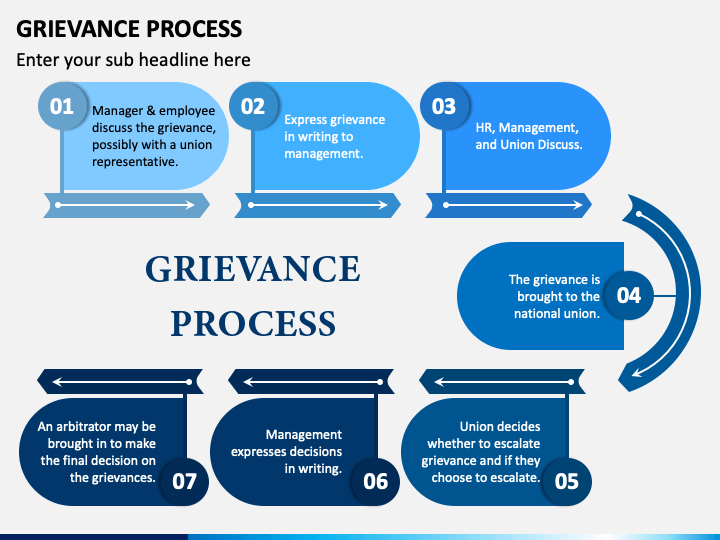Grievances can weigh heavily on your mental and emotional well-being, but learning to let go is a powerful step toward happiness and inner peace. Holding onto resentment or anger can drain your energy and prevent you from fully enjoying life. By adopting "the happy way to drop your grievances," you can transform negative emotions into positivity and improve your overall quality of life. This journey begins with understanding the root causes of grievances and learning effective strategies to release them.
In this article, we'll explore how to let go of grievances in a healthy and constructive way. Whether it's personal conflicts, past mistakes, or external circumstances, you deserve the freedom to live without the burden of resentment. By the end of this guide, you'll have actionable steps to embrace forgiveness, practice self-compassion, and cultivate a happier mindset.
Remember, the process of dropping grievances is not about ignoring your feelings but about processing them in a way that promotes healing. Let's dive into the details and discover the happy way to let go of what's holding you back.
Read also:Queenpussybossv Leak Unveiling The Facts Figures And Truth Behind The Controversy
Table of Contents
- Understanding Grievances
- The Impact of Grievances on Mental Health
- Effective Strategies for Letting Go
- The Power of Forgiveness
- Practicing Mindfulness to Release Grievances
- Embracing Self-Compassion
- Improving Communication
- Seeking Professional Help
- Lifestyle Changes for Emotional Well-Being
- Conclusion: Start Your Journey Today
Understanding Grievances
Grievances often stem from unresolved conflicts, perceived injustices, or unmet expectations. These feelings can linger in our minds, creating a cycle of negative emotions that affect our daily lives. To truly understand "the happy way to drop your grievances," it's essential to recognize the sources of these emotions and how they impact your mental state.
Types of Grievances
Grievances can manifest in various forms, including:
- Personal grievances: Conflicts with family, friends, or colleagues.
- Self-grievances: Regret over past decisions or actions.
- Situational grievances: Disappointment with external circumstances beyond your control.
By identifying the type of grievance you're dealing with, you can tailor your approach to resolving it effectively.
The Impact of Grievances on Mental Health
Carrying grievances for an extended period can significantly affect your mental health. Chronic stress, anxiety, and depression are common outcomes of holding onto resentment. Studies have shown that unresolved grievances can lead to increased cortisol levels, which negatively impact both physical and emotional well-being.
Long-Term Effects
Some long-term effects of grievances include:
- Decreased emotional resilience
- Strained relationships
- Reduced life satisfaction
Understanding these effects is crucial in motivating yourself to take action and let go of grievances.
Read also:Irelia Atwood The Rising Star Of Digital Influence And Creativity
Effective Strategies for Letting Go
Letting go of grievances requires intention and effort, but the rewards are well worth it. Here are some practical strategies to help you on your journey:
1. Acknowledge Your Feelings
Start by recognizing and accepting your emotions. Suppressing feelings can prolong the healing process. Write down your grievances in a journal to gain clarity and perspective.
2. Focus on Solutions
Instead of dwelling on the problem, shift your attention to finding solutions. Ask yourself, "What can I do to resolve this issue?" This proactive mindset can empower you to take control of the situation.
The Power of Forgiveness
Forgiveness is a powerful tool in dropping grievances. It doesn't mean excusing the behavior of others but rather releasing the hold it has on your life. Research shows that forgiveness can improve mental health, reduce stress, and enhance relationships.
Steps to Forgiveness
- Reflect on the situation and your role in it.
- Express your feelings in a healthy way, such as through journaling or talking to a trusted friend.
- Make a conscious decision to forgive and let go of the resentment.
Forgiveness is a process, and it's okay to take your time. The important thing is to start the journey toward healing.
Practicing Mindfulness to Release Grievances
Mindfulness is an effective technique for managing grievances. By staying present and focusing on the moment, you can reduce the power of negative thoughts and emotions. Mindfulness practices such as meditation and deep breathing can help you cultivate a sense of peace and clarity.
Mindfulness Exercises
Try these exercises to enhance your mindfulness:
- Meditate for 10 minutes each day to center your thoughts.
- Practice gratitude by listing three things you're thankful for each day.
- Engage in deep breathing exercises when feelings of resentment arise.
Incorporating mindfulness into your daily routine can help you release grievances more effectively.
Embracing Self-Compassion
Self-compassion is vital when dealing with grievances, especially those related to self-blame. Treat yourself with kindness and understanding, just as you would a close friend. This approach can reduce self-criticism and promote emotional healing.
Building Self-Compassion
Here are some ways to build self-compassion:
- Speak positively to yourself and avoid negative self-talk.
- Set realistic expectations and celebrate small victories.
- Practice self-care activities that nourish your mind and body.
By embracing self-compassion, you can create a healthier relationship with yourself and let go of grievances more easily.
Improving Communication
Effective communication is key to resolving grievances, especially in relationships. Misunderstandings and unresolved conflicts often stem from poor communication. By improving your communication skills, you can address issues constructively and prevent future grievances.
Tips for Better Communication
Follow these tips to enhance your communication:
- Listen actively to others without interrupting.
- Express your feelings clearly and calmly.
- Use "I" statements to avoid sounding accusatory.
Improving communication can lead to stronger, healthier relationships and reduce the likelihood of future grievances.
Seeking Professional Help
For some, letting go of grievances may require professional guidance. Therapists and counselors can provide valuable support and tools to help you navigate complex emotions. Cognitive-behavioral therapy (CBT) and other therapeutic approaches have been shown to be effective in addressing grievances and promoting mental well-being.
Benefits of Therapy
Therapy offers several benefits, including:
- A safe space to express your feelings.
- Access to evidence-based techniques for managing grievances.
- Improved coping skills for future challenges.
Don't hesitate to seek help if you're struggling to let go of grievances on your own.
Lifestyle Changes for Emotional Well-Being
Adopting a healthy lifestyle can support your efforts to drop grievances. Regular exercise, a balanced diet, and adequate sleep all contribute to better emotional health. Additionally, engaging in hobbies and activities you enjoy can provide a positive outlet for your energy.
Healthy Habits for Emotional Well-Being
- Exercise at least 30 minutes a day to reduce stress and improve mood.
- Eat a diet rich in whole foods and avoid excessive caffeine and sugar.
- Prioritize sleep by establishing a consistent bedtime routine.
By incorporating these habits into your lifestyle, you can create a solid foundation for emotional well-being and make it easier to let go of grievances.
Conclusion: Start Your Journey Today
Letting go of grievances is a powerful step toward happiness and inner peace. By understanding the sources of your grievances, adopting effective strategies, and embracing forgiveness and self-compassion, you can transform your life in meaningful ways. Remember, the journey to letting go is unique to each individual, so be patient and kind to yourself throughout the process.
We encourage you to take action today by implementing the strategies discussed in this article. Share your thoughts and experiences in the comments below, and don't forget to explore other articles on our site for more insights into emotional well-being. Together, we can create a happier, healthier world, one grievance at a time.


